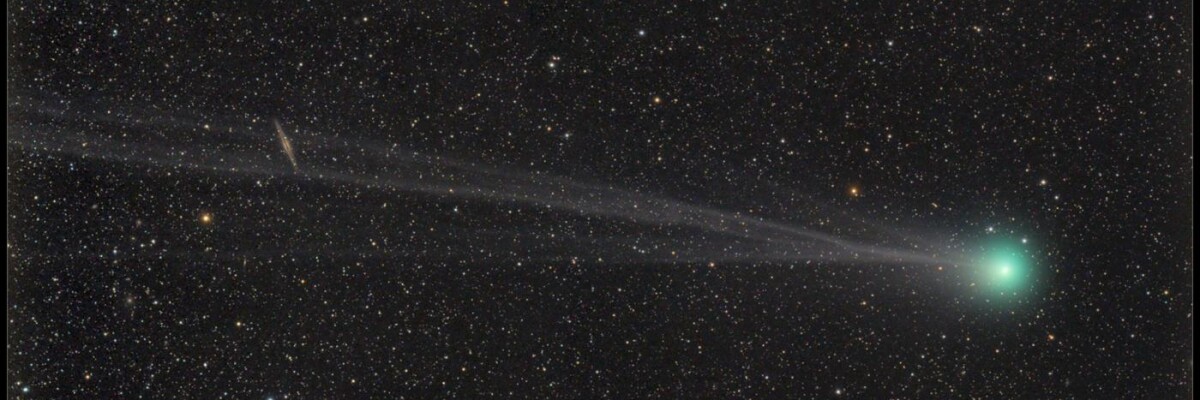This is the second known space object outside our galaxy, following the ‘Oumouamoua comet.
Astronomer Gennadiy Borisov at the Crimean Astrophysical Observatory discovered interstellar comet C/2019 Q4 (Borisov) on August 30. Until today, the status of the object was unclear: specialists at the IAU Minor Planet Center were busy verifying the data obtained by the astronomer to confirm that the comet had actually originated in another galaxy.
Before analyzing all the collected information, the experts could not confirm that the object was interstellar. Their hesitation is unsurprising, as until now scientists have only registered one interstellar object - the ‘Oumouamoua comet.
The main attribute that astronomers use to identify the origin of an object is the shape of its orbit. Space objects from the Solar System usually have an elliptical orbit: the eccentricity of their orbits is less than 1. If the eccentricity is equal to 1, then the object has a parabolic orbit, and if it is greater than 1, the orbit is hyperbolic.
Out of all known comets, several dozen follow a hyperbolic orbit, but their eccentricity is only a fraction above 1. This is often due to gravitational interactions with large planets or measurement errors.
Borisov’s comet has the highest eccentricity ever recorded - 3.07. This is even greater than ‘Oumouamoua, with an eccentricity of 1.2.
The comet has a speed of 30 km/s, and it will be at a minimal distance from the Sun in early January. Today, astronomers all around the globe are collecting information about the comet to understand its nature.
It might appear that objects from other galaxies have started appearing in the Solar System with a higher frequency. But there is no cause for panic: the main reason for this is increasing access to more accurate astronomical instruments.
Share this with your friends!





Be the first to comment
Please log in to comment